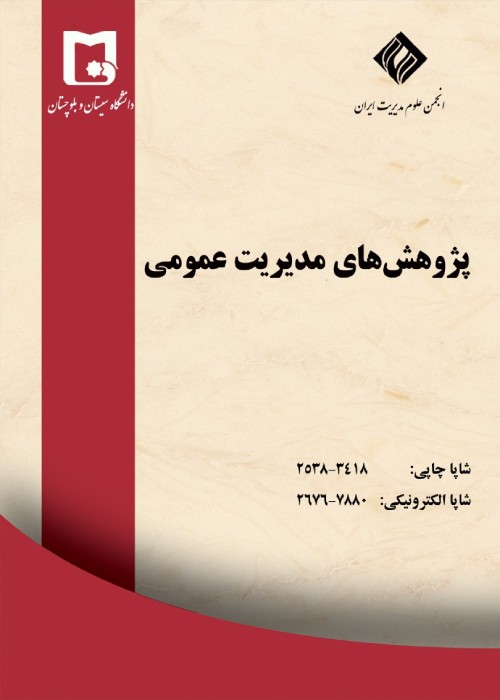Critically Examine University Management in Achieving top Global Rankings
This study aimed to critically examine university management in achieving top global rankings, using a qualitative-research approach with Ruth Wodak’s method of critical discourse analysis. Participants included 16 experts and senior officials from the Institute for Higher Education Research and Planning, University of Tehran, Eco Insurance Higher Education Institute, Alameh Tabatabae University and Technical and Vocational University whom were selected via snowball sampling method. Semi-structured interviews were applied to collect data based on theoretical saturation which were lasting between 30 and 60 minutes. For data validation both participants review (member check) and review by external experts (external check) were applied.Thematic analysis and spoken texts analysis methods were used to analyze data. The results showed that university management problems in Iran are associated with two factors: Intrapersonal Factors (extreme politicization of university managers, disregard for delegating authority and trying to maintain the status quo, assuming academic management the same as managing other organizations, inappropriate decision making and planning); and Interpersonal Factors (defective monitoring and evaluation system, inappropriate organizing and coordination). In this regard, some strategies are presented to improve the global ranking of Iranian universities.
Considering the importance of university managers’ role in improving the quality of higher education centers as well as the low ranking of Iranian universities in most international standard evaluation systems, it is necessary to study and critically examine university managers in the process of university management and leadership, and to find the reasons for Iranian universities being dropped behind other universities in the world in the above-mentioned rankings. The results of this study can help higher education managers and policy makers in decision making and strategic planning to enhance the quality of Iranian universities and compete with other universities worldwide while joining the global village to employ international knowledge and gain higher international rankings.
Case Study
Participants included 16 experts and senior officials from the Institute for Higher Education Research and Planning, University of Tehran, Eco Insurance Higher Education Institute, Alameh Tabatabae University and Technical and Vocational University whom were selected via snowball sampling method.
This study used a qualitative approach and a critical interpretive paradigm. According to this paradigm, hidden structures that cause inequality and provide solutions to change can be identified through research (Mohammadpour, 2013). According to the discourse analysis approach, the practical method of collecting data in this study involved reviewing notes taken from related lectures and analyzing interviews. Analysis methods in the CDA included thematic analysis, written text analysis, and spoken text analysis, all three types of which were used in the present study.
The results showed that university management problems in Iran are associated with two factors: Intrapersonal Factors (extreme politicization of university managers, disregard for delegating authority and trying to maintain the status quo, assuming academic management the same as managing other organizations, inappropriate decision making and planning); and Interpersonal Factors (defective monitoring and evaluation system, inappropriate organizing and coordination). In this regard, some strategies are presented to improve the global ranking of Iranian universities.
Inappropriate academic management in various areas of decision making, evaluation, and leadership is one of the factors that have been implicated in numerous research studies in lowering university rankings. Jaroka (2015) believes that university rankings help manage these centers and are important in building and securing credit. In addition, as a platform in the field of strategic management, it assists the university in policy and strategy regulation. The effectiveness of a particular management policy can also be assessed using rankings. However, given the fact that the set of activities and their respective performances are represented by rankings, they are direct reflections of the quality of academic centers. Obviously, in addition to harm reduction, eliminating the problems and challenges of university management, and opening new windows to enhance Iran's higher education status, the strategies of this article can be used as a reliable platform to hopefully eventually improve Iranian universities international rankings.
- حق عضویت دریافتی صرف حمایت از نشریات عضو و نگهداری، تکمیل و توسعه مگیران میشود.
- پرداخت حق اشتراک و دانلود مقالات اجازه بازنشر آن در سایر رسانههای چاپی و دیجیتال را به کاربر نمیدهد.



